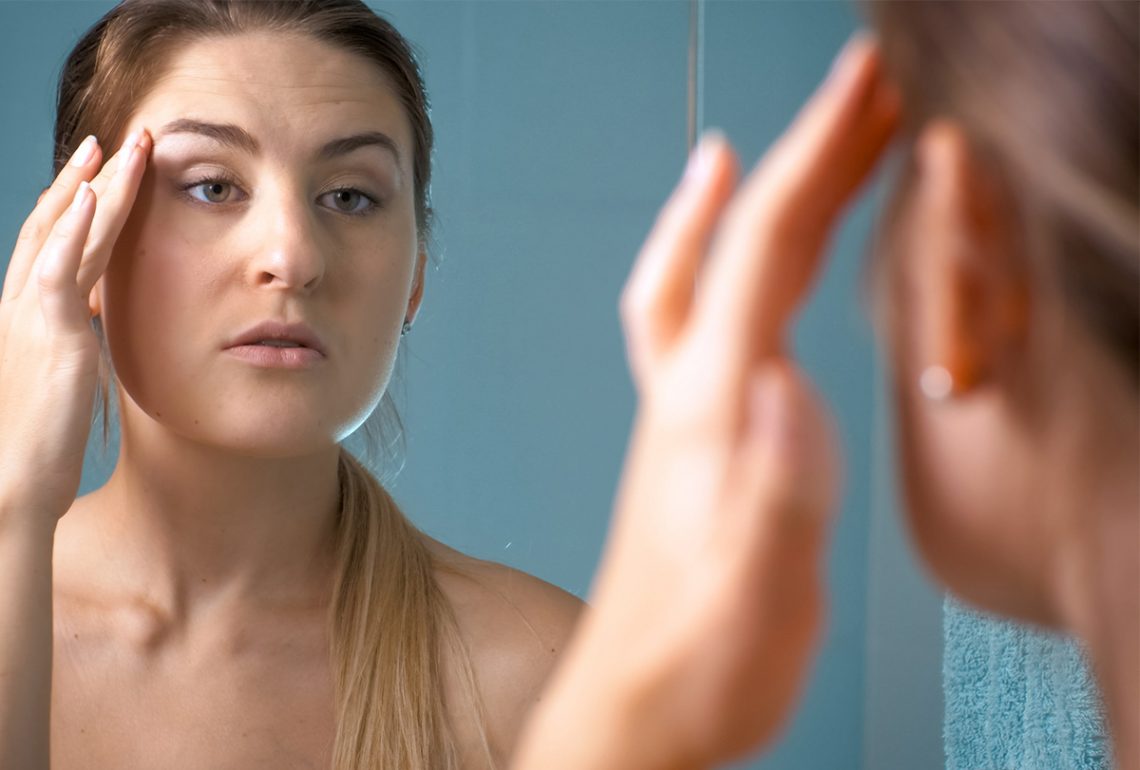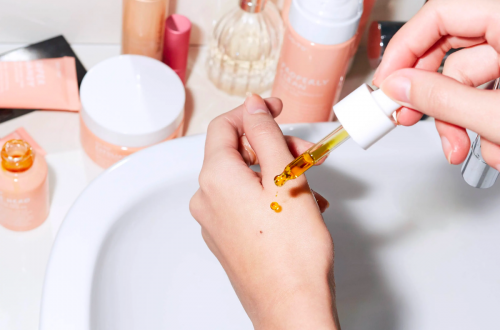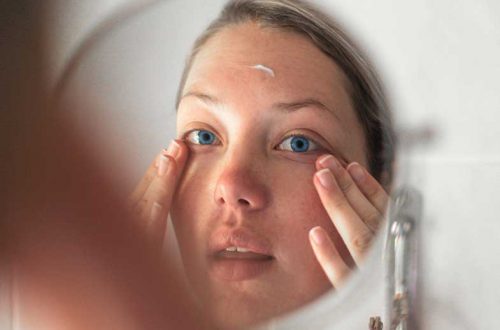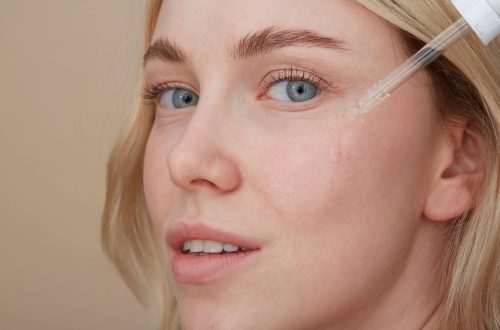
What should be considered when cleaning a face?
Clear skin is beautiful but has nothing to do with extensive cleansing. In this case, less is more. Frequent washing, wasteful use of shampoos and washing lotions always attack the skin’s protective layer and makes it easy for potential skin irritants.
Therefore: don’t take a hot shower, and don’t soap up large areas twice a day – in the morning, clear water is often enough. Sensitive or dry skin can get by with anything that doesn’t need foam (do not use surfactants) because it contains exceptionally mild detergent substances. Shower oil also cares for dry skin areas.
No long, hot baths – they dry out the skin. Avoid bubble baths; instead, take an oil bath or Dead Sea salt. From the kitchen, olive oil and milk can do their part to soothe irritated skin.
In cleansing milk, an oil-in-water emulsion carefully takes over the task of removing dirt. If the water is very calcareous, it is generally better to use cleaners that do not require water – because the calcium ions react with the skin’s oils. Even that has the potential for irritation.
Micellar waters are better: they contain specific molecules that absorb dirt like sponges. A powder foamed with water and thus does not require preservatives is also very good. A cleansing mask with mineral earth is good for the skin: mix with a few drops of almond oil, leave on for 10 minutes and then rinse off with lukewarm water.
Be careful with peeling: Coarse abrasive particles that mechanically loosen skin cells irritate the skin’s surface and cause minor injuries. Gentle enzyme peelings are allowed to clarify sensitive Skincare once a week
And how do you protect sensitive skin from the sun?
Of course, you can also enjoy the first beautiful days outside. Intensive care with a high level of Sun protection is essential for sensitive skin, and it is also hypoallergenic. Dermatologists assume that the main trigger of sun allergies and reactions to radiation is UVA light, so they recommend sunscreen with high UVA filters(from SPF 20) and protection free from fragrances and preservatives.
Anyone who feels better can use mineral sunscreen that contains no chemical UV filters. Still, only zinc oxide and titanium dioxide – these mineral filters lie on the skin like a film and reflect the UV rays. Thanks to new technologies, they can now also be used on their own. Very high sun protection factors can be achieved with this.
Necessary: Chlorine or salt can cause skin irritation under UV light, so always shower with clear water after swimming before going out in the sun. Dermatologists also recommend that severely afflicted people take high-dose calcium or vitamin B supplements before sunbathing for the first time. In this way, the organism can cope better with the rays.
What role does the psyche play in sensitive disorders?
You can feel it when you get hectic spots, even without looking in the mirror. Our vegetative nervous system has a dedicated line to the skin: stress hormones sabotage the transport of the body’s defences and make them vulnerable to external influences. The more ‘thin-skinned’ we are emotional, the more sensitively our skin reacts, which also specialises in psychosomatic illnesses. Even idioms indicate: It’s driving off your skin. You don’t feel comfortable in your skin.
Many skin diseases are psychosomatic. The physical and mental are inseparably linked, and an appropriate diagnosis of a disease always includes both dimensions on an equal footing. In ancient times there was no question about it. The Greek term “eczema” means “boil” – the skin becomes inflamed, forms blisters, breaks open and itches. Hives, for example, can indicate an inner conflict for which no solution can be found.
Sensitive skin can, therefore, also be helped with other things than the proper care: attention, for example, is a good measure. A massage or loving touch releases the hormone oxytocin, which has a de-stressing effect, reduces the pain sensation and improves healing (curiously, the body also releases it when singing).
Which doesn’t help at all, even if it might be difficult: arguing with your skin and seeing it as an enemy. The fact that the skin reacts sensitively to stimuli is a good thing. According to one theory, a hypersensitive immune system should have been a survival advantage when things were not yet so hygienic.
At that time, it was imperative to immediately react violently to the first bacterium or the tiniest mite and to send out an alarm so that all defensive measures were activated before anything worse happened. When we tell the readers, they are somewhat reconciled to their suffering and immediately make a little peace with themselves. And that is the first step toward balance.




